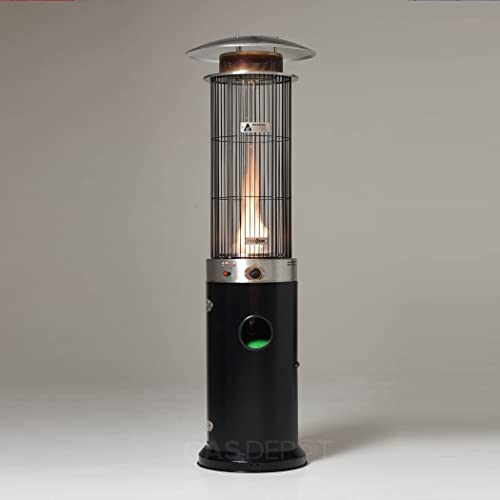The Main Issue With Gas Powered Heaters, And How You Can Repair It
Gas Powered Heaters: A Comprehensive Guide
When it pertains to heating property or commercial areas, gas-powered heaters have earned a prominent track record for their efficiency and price. Providing a mix of performance and cost-effective operation, they are favored by many property owners and organizations alike. This post intends to clarify the different types, advantages, and considerations associated with gas-powered heaters, allowing readers to make educated choices about their heating solutions.
Kinds Of Gas Powered Heaters
Gas-powered heaters can mainly be classified into different classifications based on their style and function. Each type serves a specific function and features unique functions:
Type
Description
Typical Uses
Natural Gas Heaters
Make use of natural gas as a fuel source.
Residential spaces, commercial buildings
Propane Heaters
Use propane gas, typically in locations without natural gas.
Outdoor heating, remote areas
Infrared Gas Heaters
Discharge infrared radiation to directly warm objects.
Patios, workshops, garages
Gas Wall Heaters
Installed on walls, these heaters are space-saving.
Small spaces, bedrooms
Gas Fireplaces
Provide both warmth and visual appeal.
Living spaces, recreational areas
Benefits of Gas Powered Heaters
Gas-powered heaters come with numerous significant advantages, adding to their popularity amongst users. Here are some of the essential benefits:
Energy Efficiency: Gas heaters are understood for their high energy performance. They convert a big portion of the energy in gas into heat, typically making high average Annual Fuel Utilization Efficiency (AFUE) scores, which measures how efficiently a heating system converts gas energy into usable heat.
Economical Operation: Natural gas and propane are usually more budget friendly than electricity. Property owners utilizing gas heating can see a noticeable reduction in their energy expenses throughout the cooler months.
Quick Heating: Gas-powered heaters tend to warm areas quickly, offering instant relief, specifically throughout chilly winter days and nights.
Lower Environmental Impact: Compared to electric heating systems that rely on fossil-fuel energy sources, gas heaters can be a more environmentally-friendly alternative, particularly when using gas that produces fewer carbon emissions.
Dependability: Gas systems can continue to operate during power blackouts, which makes them a trustworthy heating choice in areas susceptible to extreme weather or electrical disruptions.
Considerations When Choosing a Gas Powered Heater
While gas-powered heaters provide a series of advantages, there are also several factors to consider to keep in mind before buying:
Installation Requirements: Some gas heaters need expert setup including venting systems to safely expel combustion gases. Ensure you understand the installation procedure and any associated costs.
Security: It is vital to keep safety in mind when utilizing gas appliances. Regular upkeep and inspections are crucial to avoiding problems such as gas leaks or carbon monoxide, which can pose severe health threats.
Space and Size: Selecting the right size heater for your space is crucial. A large unit can result in short cycling and unnecessary costs, while a small unit might not offer sufficient heat.
Fuel Availability: Assess the availability of either natural gas or propane in your area. This can affect ongoing costs and usage.
Regional Regulations: Check any regional building regulations and policies concerning gas setups to ensure compliance and safety.
Upkeep Tips for Gas Powered Heaters
To prolong the life of gas-powered heaters and maintain their effectiveness, consider implementing the following maintenance strategies:
Regular Inspections: Schedule yearly examinations with a qualified service technician to examine the total condition of the heater and determine any prospective concerns.
Tidy the Burner: Dust and debris can accumulate on burner, resulting in ineffective operation. Cleaning up periodically can assist optimize performance.
Check Ventilation: Ensure that venting systems are clear of blockages and operating properly to alleviate dangers of carbon monoxide buildup.
Look for Gas Leaks: Regularly check the gas line and connections for any possible leakages. Sudden rises in gas bills may suggest a problem.
Change Filters: On certain models, air filters may require replacement or cleaning to ensure appropriate airflow and system efficiency.
FAQs About Gas Powered Heaters
1. How do I know what size gas heater I require?
Calculating the appropriate size of a gas heater for your space normally includes evaluating the square video of the area to be heated up, insulation quality, and climate conditions. hop over to here can also supply precise sizing suggestions.
2. Are gas heaters safe to utilize?
Yes, gas heaters can be safe when used and maintained properly. Nevertheless, it's vital to follow security standards including regular assessments and maintenance to make sure that possible risks such as gas leaks are mitigated.
3. Can I use gas heaters inside?
Lots of gas heaters are safe for indoor use, but they need to be properly vented to the outside. Always refer to the manufacturer's standards and local policies before using gas heaters indoors.
4. What should I do if I smell gas?
If you spot a gas smell, leave the area instantly, do not operate any electrical devices, and contact your local gas business or emergency services to report the leak.
5. For how long do gas heaters last?
With proper maintenance, a high-quality gas heater can last anywhere from 10 to 20 years. Routine service can assist extend its life expectancy.
Gas-powered heaters are an effective and efficient method to heat areas during cooler months. With different options offered, consumers can discover a heating service customized to satisfy their specific needs and choices. By understanding the advantages, factors to consider, and correct upkeep required, people can guarantee that their gas heating systems offer warmth reliably and securely for many winter seasons to come.
